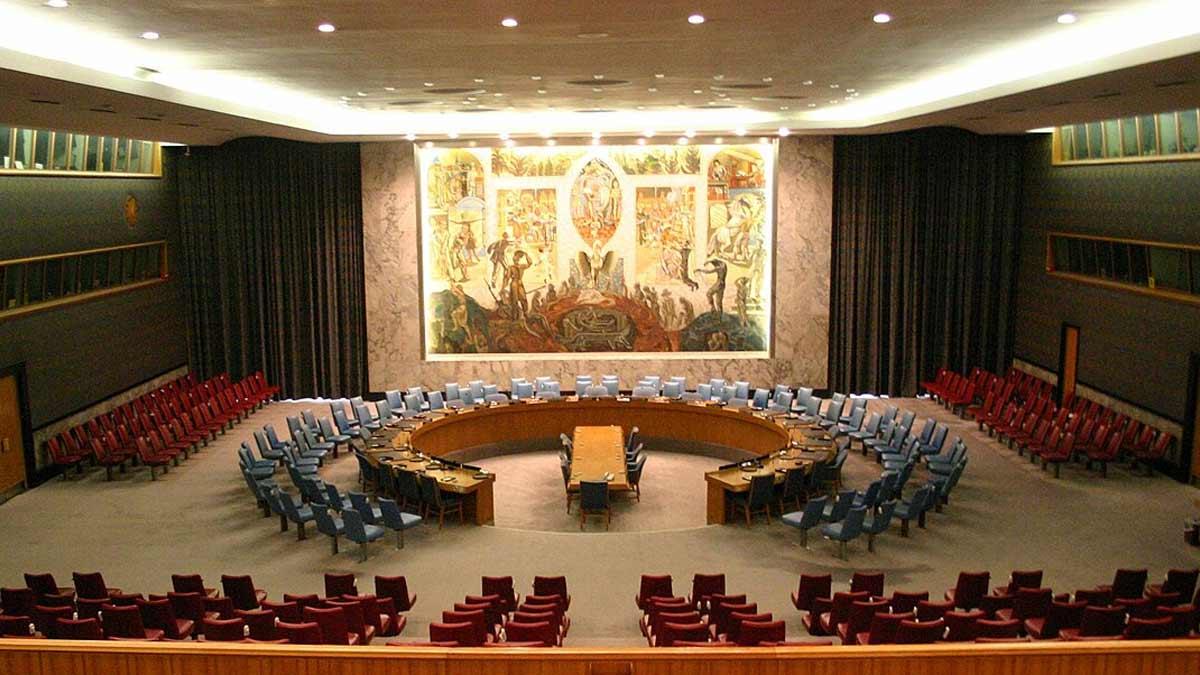The G4 nations of India, Brazil, Germany, and Japan welcome the UN's Summit of the Future. World leaders strongly called for the urgent reform of the Security Council, said such comprehensive reform is significant to make the United Nations better reflect contemporary geopolitical realities.
On the sidelines of the 79th Session of the United Nations General Assembly, the Foreign Ministers of the "Group of Four" countries-External Affairs Minister S Jaishankar, Foreign Minister of Brazil Mauro Vieira, Foreign Minister of Germany Annalena Baerbock, and Minister for Foreign Affairs of Japan Yoko Kamikawa-gathered to review the state of play and the possibilities of reform of the United Nations Security Council.
The joint press statement issued after the meeting by the G4 Ministerial said that the foreign ministers welcomed "the 'Summit of the Future', which was held on September 22 and 23 at UN headquarters, where world leaders made a strong appeal for immediate reform of the Security Council." "They underscored the urgent need to transform global governance and reiterated that UN Security Council reforms would remain on top of the agenda post- the 'Summit of the Future'," the statement said.
At the Summit of the Future, world leaders yesterday adopted by consensus the Pact of the Future in which they promise to "reform the Security Council, recognizing the urgent need to make it more representative, inclusive, transparent, efficient, effective, democratic and accountable." UN officials have described the language in the Pact of the Future on the long-pending Security Council reforms as "groundbreaking".
The G4 ministers reminded that, currently, significant challenges exist to the multilateral system with the United Nations at its core. "They stressed that a comprehensive reform of the Security Council is an essential part of any endeavour to make the United Nations better reflect contemporary geopolitical realities and thus fit for the present and future," it said.
Germany, India, and Japan also welcomed Brazil's initiative to issue a Call to Action on Global Governance Reform in the framework of the Brazilian Presidency of the G20.
And since next year will mark the UN's 80th anniversary, G4 Ministers emphasized that reforming the Security Council is an urgent issue as well as a strong commitment to pursuing it.
"They called on the international community to commit themselves wholeheartedly to these efforts through the 79th UN General Assembly and committed themselves to reaching out further, and working in good faith with, the broader membership of the UN towards advancing the matter.". They agreed to continue discussing the current issues related to the UN, particularly in the Security Council. The G4 Ministers reaffirmed their position on the need to expand the current 15-member Security Council in both its categories, permanent and non-permanent, for which a large number of Member States have been arguing consistently during the negotiations, to give the Council more legitimacy and effectiveness.
They agreed on the need to enhance the role and participation of developing countries, and those significantly contributing to international peace and security, in the Security Council, in both membership categories," the statement said.
In this connection, they emphasized that there was a strong need for increased representation of underrepresented and unrepresented regions and groups, particularly Africa, Asia-Pacific, and Latin America and the Caribbean, in both categories of membership. Ministers reiterated that the Common African Position as embodied in the Ezulwini Consensus and the Sirte Declaration was fundamentally sound and should be endorsed by the Madrid Summit.
The pact on the future of the world commits world leaders to redressing the historical injustice against Africa as a priority and, while treating Africa as a special case, improving representation of the under-represented and unrepresented regions and groups, which includes Asia-Pacific and Latin America and the Caribbean. They also agree to make the Security Council larger, representing the membership of the United Nations in current times and the realities of the world that exist now.
Reviewing the work of the 78th Session of the UN General Assembly, the G4 Ministers expressed deep concern at the "persistent absence of substantial progress" in the Inter-Governmental negotiations and underscored the urgent need to initiate text-based negotiations. They, however, welcomed the recent increase in support for text-based negotiations and looked forward to engaging further in model discussions, including through a collective effort to develop a consolidated model.
Read also| UN Leaders Commend India's Significant Global Contributions


















